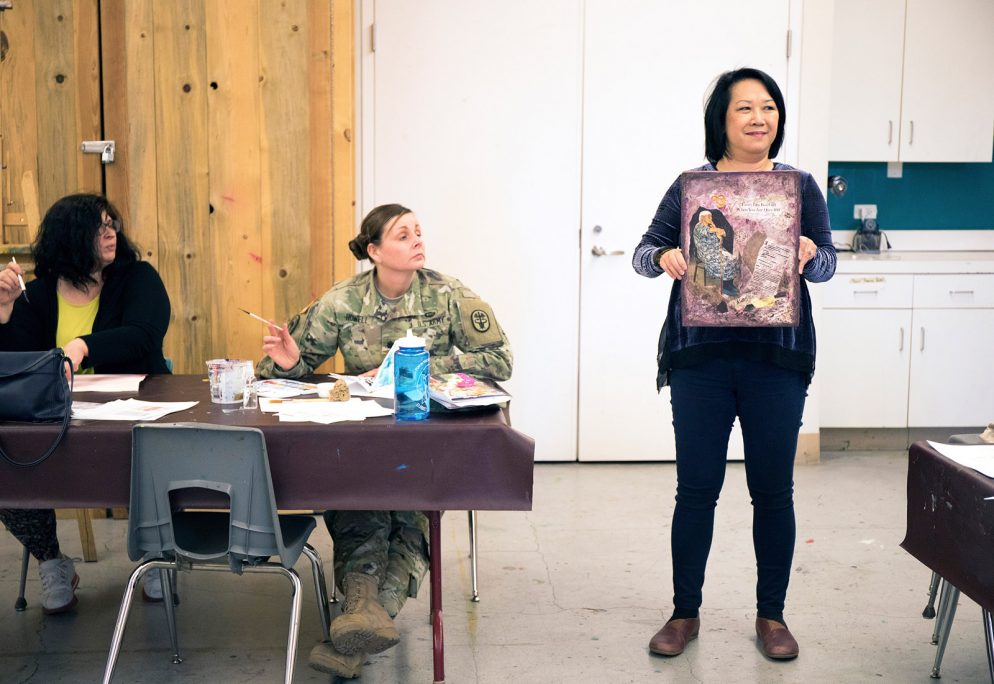Kim Nguyen’s work with trauma began when she was 13 years old. For 20 years, war raged across her native Vietnam. Many thousands of families, Nguyen’s included, sought safety elsewhere and fled the war. In December 1975, her family and nearly 30 other people boarded a small fishing boat, looking to escape. It was a harrowing journey. Not everyone made it. Her father, attempting to fasten a makeshift sail to the boat after their engine died, was washed overboard by huge waves and drowned.
After days adrift, the boat ran ashore in Malaysia. Met by representatives from both the United Nations and the Red Cross, Nguyen and her family ended up in California and, as so many refugees before them, relied upon their new community for support.
Settling in after a time, Nguyen was a dedicated student. Her true calling – art and community work – came to her during her college years, during a fine arts class. Engaging with creativity in a way that helped her process the traumas of her past, this laid the groundwork for her pursuing her master’s in art therapy, and for the work she’s devoted her life to.
Fast forward to 2009. Nguyen had moved to Colorado, working as a creative expressions community liaison for AspenPointe, a Colorado Springs-based nonprofit offering mental and behavioral health services, education, and professional development to members of the local community.
These services include teaching the Military Artistic Healing class at the Bemis School of Art at the Colorado Springs Fine Arts Center at Colorado College, which has served more than 500 active duty, wounded, and retired service personnel, as well as their families, in the coping and healing processes of post-traumatic stress disorder, or PTSD.
Utilizing the community aspect of the FAC is key to the success of the program, providing Nguyen and her students with a safe, non-clinical space to explore and express, ensuring that all involved can disclose anything in complete confidence.
“The benefit of having this class at the FAC is that it is removed from any clinical setting, which allows all disclosures to be honored and confidential,” Nguyen explains. “That increases the trust between me as the therapist and the participants.”
Not only does the FAC provide the class a safe space, but it also offers incredible access.
“The access to the collection at the FAC,” Nguyen says, “serves as a teaching tool for learning about all aspects of art — how we describe it, display it, hang it, label it, and so on, as well as connecting our participants with the local community — something that is especially important for relocated military personnel.”
The program uses the intersection of creativity and community, a place of learning, pain, and healing that Nguyen knows intimately well.
“I’m interested in success stories as much as I am the harder ones to tell,” Nguyen says of her participants. Not all find immediate healing through the work they do, but all of them come away with lifelong access to skills that might not have been an option before.
“The skills provided by the class are focused on expressive techniques rather than artistic,” she says.
“Participants of the program can continue using these skills throughout their lives — it’s not about painting a pretty picture to put on the wall, it’s about them expressing themselves no matter where they are emotionally, intellectually, psychologically, or spiritually.”
